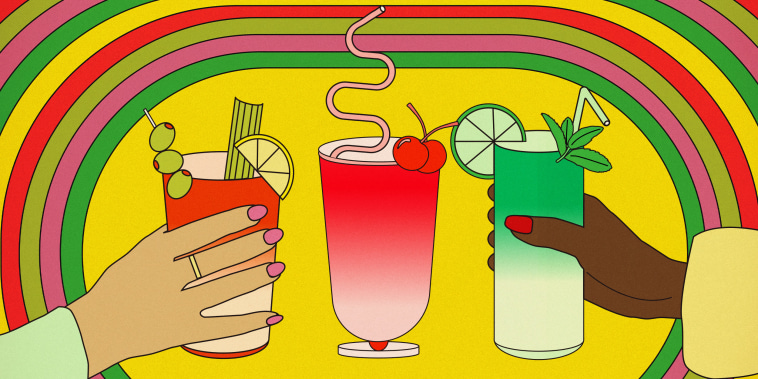As the trend of ‘Dry January’ gains momentum, a growing number of people are choosing to abstain from alcohol for the first month of the year. This movement, which began as a public health campaign in the UK, has now spread globally, with millions of people participating each year. However, as more people turn to non-alcoholic alternatives, some are expressing surprise at the high cost of mocktails.
Mocktails, or non-alcoholic cocktails, have been around for decades, but their popularity has surged in recent years. They offer a sophisticated and flavorful alternative to alcoholic beverages, allowing those who choose not to drink to still enjoy the social aspect of having a drink in hand. However, despite their lack of alcohol, these beverages can often be just as expensive, if not more so, than their alcoholic counterparts.
The sticker shock experienced by some consumers can be attributed to several factors. Firstly, the ingredients used in mocktails are often high-quality, fresh, and sometimes exotic. These ingredients can be expensive, and the cost is reflected in the price of the drink. Additionally, the skill and time required to create these complex beverages can also contribute to their high price. Just like a traditional cocktail, a mocktail requires a certain level of expertise to balance flavors and create a visually appealing drink.
Moreover, the rise of ‘Dry January’ and the increasing demand for non-alcoholic beverages have led to the development of a whole new market of premium non-alcoholic spirits. Brands like Seedlip, Lyre’s, and Ritual Zero Proof are creating sophisticated non-alcoholic alternatives that mimic the flavors of gin, whiskey, and other spirits. These products are often priced similarly to premium alcoholic spirits, which can drive up the cost of mocktails.
Another factor contributing to the high price of mocktails is the perception of value. In many cultures, alcohol is associated with celebration and indulgence, and therefore, consumers are often willing to pay a premium for it. When a mocktail is priced similarly to an alcoholic cocktail, it can create a perception of value and luxury, even without the presence of alcohol.
However, it’s important to note that while some consumers may be surprised by the cost of mocktails, many are willing to pay a premium for these beverages. The trend towards healthier lifestyles and mindful drinking means that for many, the benefits of choosing a non-alcoholic beverage outweigh the cost.
In conclusion, while the price of mocktails may be a shock to some, it’s a reflection of the quality of ingredients, the skill required to make them, and the growing market for premium non-alcoholic beverages. As ‘Dry January’ continues to grow in popularity, it’s likely that we’ll continue to see a rise in the demand for, and price of, mocktails.

